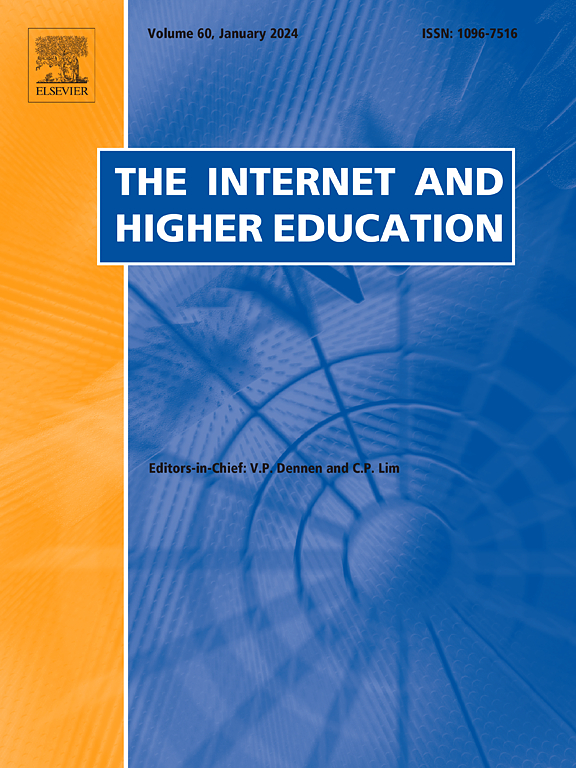数字分心、学习倾向自我调节和动机影响之间的相互作用:一项跨国调查
IF 6.8
1区 教育学
Q1 EDUCATION & EDUCATIONAL RESEARCH
引用次数: 0
摘要
大学生在课堂上滥用移动设备是一个危害学习的全球性问题。虽然先前的研究调查了单个国家的设备滥用频率,但没有已知的研究直接比较了这种行为的跨国差异,因此对于跨文化差异是否影响这种行为知之甚少。摘要本研究旨在探讨美国、南韩、土耳其等国家是否会调节学习自我调节(SRL)倾向、动机因素(基本心理需求满足与效用价值感知)与设备滥用之间的关系。层次调节回归分析揭示了跨文化的一致模式:SRL倾向对设备滥用的影响很小,而基本需求满足和效用价值感知是保护因素。研究结果表明,大学课堂上的数字干扰超越了通常导致学生行为差异的文化影响,强调需要全球相关策略来减少干扰并增强学生的动机。这些结果也挑战了传统的假设,即自我调节的学习者不太容易受到数字分心的影响。在本研究中,即使是那些更自律的参与者也经常在课堂上滥用电子设备。这些发现表明,在课堂上展开的SRL表现阶段充满了中断和设备滥用,即使对更自律的大学生来说也是如此。研究结果强调了培养激励支持性学习环境的重要性,以遏制数字干扰和培养学生的参与度。本文章由计算机程序翻译,如有差异,请以英文原文为准。
The interplay among digital distraction, self-regulation of learning tendencies, and motivational influences: A transnational investigation
College students' misuse of mobile devices during class for off-task purposes is a global issue that harms learning. While prior studies examined device misuse frequency within individual countries, no known studies have directly compared transnational differences in this behavior, leaving little known about whether crosscultural differences influence this behavior. This study investigates whether the country where students attend college (United States, South Korea, or Turkey) moderates the relationships among self-regulation of learning (SRL) tendencies, motivational factors (basic psychological needs satisfaction and utility value perceptions), and device misuse. Hierarchical moderated regression analyses revealed consistent patterns across cultures: SRL tendencies had little impact on device misuse, whereas basic needs satisfaction and utility value perceptions served as protective factors. Findings suggest that digital distraction in college classrooms transcends cultural influences that commonly lead to differences in student behavior, emphasizing the need for globally relevant strategies to reduce distractions and enhance student motivation. These results also challenge traditional assumptions that self-regulated learners are less susceptible to digital distraction. Even the more self-regulated participants in the present study regularly misused their devices during class. Such findings indicate that the performance phase of SRL that unfolds during class is riddled with disruptions and device misuse, even for the more self-regulated college students. Findings highlight the importance of fostering motivationally supportive learning environments to curb digital distraction and nourish student engagement.
求助全文
通过发布文献求助,成功后即可免费获取论文全文。
去求助
来源期刊

Internet and Higher Education
EDUCATION & EDUCATIONAL RESEARCH-
CiteScore
19.30
自引率
4.70%
发文量
30
审稿时长
40 days
期刊介绍:
The Internet and Higher Education is a quarterly peer-reviewed journal focused on contemporary issues and future trends in online learning, teaching, and administration within post-secondary education. It welcomes contributions from diverse academic disciplines worldwide and provides a platform for theory papers, research studies, critical essays, editorials, reviews, case studies, and social commentary.
 求助内容:
求助内容: 应助结果提醒方式:
应助结果提醒方式:


